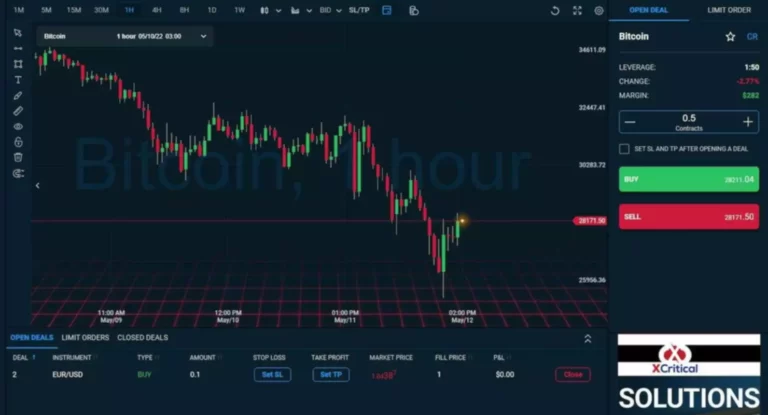This will higher stability protecting traders with fostering capital formation and innovation. The MiCA regime applies to all individuals https://www.xcritical.in/ that intend to issue/offer crypto-assets or provide crypto-asset providers. CASPs should have an handle in the EU where they effectively perform a minimum of a half of their crypto-related actions. In addition, CASPs should be licensed under the Regulation or beneath different EU monetary or banking laws (e.g. authorised credit score institutions, investment companies, and so on.). Some persons are explicitly excluded from the scope of the Regulation, e.g., those offering crypto companies to their parent company or subsidiary.

Kenya΄s Crypto Regulation Attempt
- Steve contributes intensive enterprise and problem-solving expertise to challenges that may require litigation – or could assist keep away from it.
- In this part, we will discover the basics of AML and the precise laws that apply to crypto exchanges.
- Clear and consistent regulatory frameworks also can ensure truthful competitors and allow the crypto industry to coexist with conventional financial methods.
- In addition, spot ETFs make it simpler for institutional and retail investors to gain exposure to cryptocurrencies via their conventional brokerage accounts.
- It should be noted that in addition to federal AML regulations, the crypto market can also be subject to regional and state-level regulatory requirements.
- According to the IRS’s calculations, compliance with the rules would cost the trade over $260 billion annually — a probably existential burden for a lot of DeFi initiatives.
These are crypto-assets that search to maintain up a steady worth by referencing another value or proper, or a mixture thereof, together with one or more official currencies. Electronic cash tokens goal to hold up stable worth by referencing the value of an official forex. As a outcome, the existing EU legal framework for conventional e-money (the E-money Directive, applied kyc meaning crypto in Bulgaria in the Payment Services and Payment Systems Act) also applies to e-money tokens.
Breaking Down The Necessities: Kyc And Aml Necessities For Exchanges!

Unfortunately, criminals may exploit vulnerabilities resulting from these changes and devise new strategies to exploit the system. To mitigate these risks, crypto exchanges must implement strong Anti-Money Laundering (AML) measures, together with customer due diligence, transaction monitoring, and reporting obligations. By adhering to those measures and collaborating with regulatory authorities, crypto exchanges can play an important position in combating money laundering and terrorist financing within the crypto trade. The pseudonymous nature of cryptocurrencies could make them enticing for money laundering, terrorist financing, tax evasion, and different illegal functions. By implementing Know Your Customer (KYC) and Anti-Money Laundering (AML) requirements, regulators can minimise these dangers and ensure that digital assets Blockchain usually are not exploited for unlawful actions.
Expertise Options For Aml Compliance
Criminals employ numerous strategies, together with off-chain transactions, to hide their activities, presenting a further hazard. Compliance issues additionally come up when it comes to personnel, as smaller crypto firms lack the construction and assets available to bigger enterprises. Experienced compliance specialists often have higher wage expectations than these firms can accommodate. Both crypto firms and standard financial services corporations comply with comparable finest practices to ensure compliance.
Widespread Challenges In Implementing Aml Policies For Crypto Exchanges
As a results of this new recommendation, digital assets and virtual asset service providers (VASPs) will be topic to full regulation by means of money laundering prevention and counter-terrorist financing, similar to any other financial product. They are required to implement KYC, transaction monitoring, and suspicious activity reporting processes to make certain that their platforms usually are not used for money laundering or terrorist financing. For example, in 2021 alone, greater than $8.6 billion worth of cryptocurrency was laundered through varied cryptocurrency exchanges. Because cryptocurrency transactions may be nameless, and crypto exchanges vary in the stage of regulatory compliance, cash laundering in this area is a big issue.
While asserting its settlements with crypto exchanges, the SEC has gone out of its way to emphasize its willingness to work with cooperative trade members. The goal, Gensler has stated, is to increase to crypto the investor protections which have ensured the success of U.S. securities markets. The growing number of regulatory settlements by cryptocurrency firms suggests that the message is starting to resonate. One cause for cryptocurrency’s enduring recognition is its promise to decentralize cash and trade. According to proponents, digital currencies may result in much less management and regulation by entities just like the SEC, central banks, and other political establishments. Advocates argue that this, in flip, will result in a extra equitable or “democratic” financial ecosystem.
Audits may help identify any gaps or weaknesses within the compliance program, allowing the trade to take corrective measures promptly. Additionally, audits provide assurance to regulators, stakeholders, and clients that the trade is dedicated to maintaining a excessive level of AML compliance. Some states have legal guidelines and ethical rules concerning solicitation and advertisement practices by attorneys and/or other professionals.

A world method wouldn’t only enhance client protections but also create an setting conducive to innovation, making certain the responsible evolution of cryptocurrency markets. While reviews indicate that India has the best virtual digital asset (“VDA”) adoption throughout jurisdictions, we are but to see any concrete motion on a corresponding regulatory framework to govern the sector and provide authorized readability. KYC and AML requirements for exchanges are an important initial step in guaranteeing the security, credibility, and sustained enlargement of cryptocurrencies on the planet economy. These guidelines not solely assist in the prevention of illegal activity but also advance transparency, foster confidence, and shield clients from deception. To guarantee the security and validity of cryptocurrencies and the bigger financial sector, these rules must continue to adapt because the trade and the underlying blockchain know-how broaden and alter.
Each CASP must obtain a license to hold out its activities issued by the relevant nationwide competent authority in an EU Member State 1 . The major necessities for authorisation are listed in the Regulation and particulars will be included within the relevant regulatory technical requirements developed by ESMA. In addition to specific personal funds necessities depending on the kind of providers offered, the applicant should show that it meets certain management requirements. For instance, the members of the management body should be of fine reputation and possess enough data, abilities and experience to perform their duties. In addition, the applicant must develop and undertake certain internal policies, processes and procedures to make sure reliability and continuity within the provision of the respective crypto services. Each CASP must adequately manage potential instances of conflict of curiosity, make positive the security of its clients’ funds and belongings, apply a process for accepting and dealing with customer complaints, and so on.
The relative novelty of cryptocurrencies and the evolving regulatory landscape have created opportunities for financial criminals to use the market. Inadequate AML regulations and oversight have allowed criminals to exploit the anonymity and decentralized nature of cryptocurrencies for illicit actions. Money laundering, terrorism financing, bribery, and fraud have turn out to be prevalent throughout the crypto market due to these regulatory gaps. Criminals see cryptocurrencies as a convenient device to obfuscate the origins and destinations of illicit funds, making it difficult for legislation enforcement businesses to track and seize these belongings.
These adjustments would empower early-stage crypto tasks to access a large pool of buyers, democratizing access to promising investment alternatives while preserving transparency. Deloitte refers to a number of of Deloitte Touche Tohmatsu Limited (“DTTL”), its international network of member corporations, and their related entities (collectively, the “Deloitte organization”). DTTL (also referred to as “Deloitte Global”) and every of its member corporations and associated entities are legally separate and unbiased entities, which cannot obligate or bind one another in respect of third events. DTTL and each DTTL member agency and associated entity is liable just for its own acts and omissions, and not these of one another. Deloitte refers to one or more of Deloitte Touche Tohmatsu Limited (DTTL), its global community of member firms, and their related entities (collectively, the “Deloitte organization”).
Understanding the inherent risks of money laundering in cryptocurrency transactions and implementing effective AML measures are essential for sustaining the integrity of the financial system. In addition to monitoring, crypto exchanges have an obligation to report any suspicious transactions to the related authorities. By promptly reporting suspicious transactions, exchanges contribute to the general efforts in combating cash laundering and terrorist financing within the crypto industry. Crypto exchanges are required to implement robust transaction monitoring techniques to detect suspicious activities. By closely monitoring transactions, exchanges can identify patterns that will point out money laundering or terrorist financing. In case of any suspicious transactions, exchanges must report them to the relevant authorities as per regulatory requirements.
Adam Hayes, Ph.D., CFA, is a financial writer with 15+ years Wall Street expertise as a derivatives dealer. Besides his extensive derivative buying and selling experience, Adam is an expert in economics and behavioral finance. Adam received his master’s in economics from The New School for Social Research and his Ph.D. from the University of Wisconsin-Madison in sociology. He presently researches and teaches economic sociology and the social studies of finance on the Hebrew University in Jerusalem. The GIP Digital Watch observatory displays on a extensive variety of themes and actors involved in world digital policy, curated by a dedicated group of specialists from all over the world. To submit updates about your organisation, or to join our group of curators, or to investigate about partnerships, write to us at [email protected].
Regulatory authorities worldwide are grappling with the want to strike a stability between fostering innovation in the crypto industry and safeguarding towards illicit activities. As a result, there is a lack of uniformity in AML rules for crypto exchanges across different jurisdictions, resulting in compliance complexities and potential regulatory arbitrage. Extending that precept into the crypto asset markets, the SEC could allow regulated crypto buying and selling platforms (both exchanges and brokerages) to commerce any asset for which the platform can provide traders with correct, current information.
